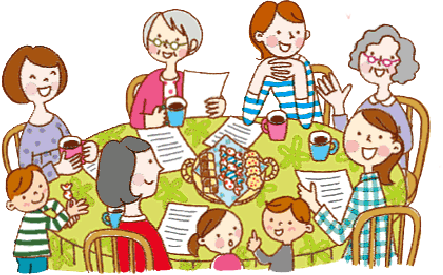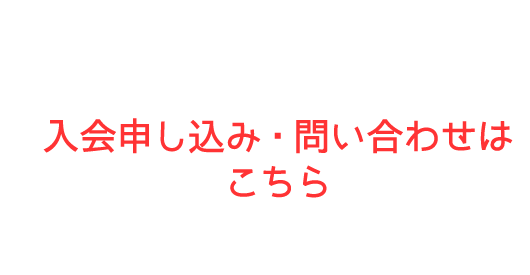Statement
Since its founding in 1962, the New Japan Women’s Association, with its 130,000 members, has been working all over Japan for the elimination of nuclear weapons, and for the promotion of gender equality, rights of women and children, and solidarity of women around the world for peace.
Challenges Exposed by COVID-19 Pandemic
In the year to commemorate the 75th anniversary of the foundation of the United Nations and the 25th year from the Fourth World Conference on Women (Beijing+25), the world is facing the COVID-19 pandemic, and in many places, trends are emerging to rethink the profit-first neoliberal economic model and capitalism from the bottom up. As a massive number of women have lost their jobs and violence against women and children is skyrocketing, the pandemic has had disproportionate impact on women.
Japan fell to a new record low of the 121st among 153 countries in the Global Gender Gap ranking, and the COVID-19 crisis shone a spotlight on Japan’s extraordinary lag in policies to promote gender equality. 56.6 per cent of working women work in non-regular jobs, and women workers are paid 52.7 per cent of what their male counterparts receive. From April to July in 2020, female non-regular workers were the first to lose jobs, accounting for 70 per cent of all. The poor working conditions including low wages of women who compose the majority of essential workers have also become a major social issue. Teenage pregnancy inquiries surged to 2.7 times higher than the number reported in the same period last year, and the frequent occurrence of domestic and sexual violence is also alarming. Further, the government’s across-the-board 100,000-yen cash handouts to mitigate the pandemic impact were not given directly to each individual, but through the heads of the households. This was seen as an anachronistic act which demonstrated Japan’s backwardness in gender equality. It is necessary for Japan to apply gender perspectives to review all existing systems including labor laws as well as taxation and social security.
There are three factors hindering Japan from making progress towards gender equality. First is the financial circles’ profit-first neoliberal strategy which undermines the basis for guaranteeing independence and equality. This is exactly the point at issue today. Second is the backlash pushed by the war-glorifying and misogynist right-wing group. Third is the lack of policies for peace. The current Cabinet has only two women among its 20 members, and with these two female ministers included, 18 members belong to the above-mentioned group, who refuses to acknowledge the truth about the atrocities Japan perpetrated during the war against peoples of Asian nations, including the victims and survivors known as “comfort women” who were forced into sexual slavery by the Japanese military. The group upholds the reactionist family policy and even denies the Convention on the Elimination of All Forms of Discrimination against Women. Female lawmakers occupy only 9.9 percent of the House of Representatives seats, and women make up only 14.8 percent of those in senior and leadership positions in the economic arena. While women are still underrepresented in public life, the government is set to delay its goal of increasing the proportion of women in leadership positions to 30 percent, in the reference in the Fifth Basic Plan for Gender Equality to be adopted by the Cabinet at the end of this year. With record-high military spending of 5.5 trillion yen (approximately 52.2 billion in US dollars), the country is advancing on the course of militarization.
Women Acting for a Peaceful, Just and Sustainable Future
In Japan, women are carrying the message of #MeToo and #WithYou to organize flower demonstration throughout the country in solidarity with the sexual assault survivors calling for the elimination of sexual violence and harassment, as well as for the Penal Code reform to toughen penalties. Women ’s actions are spreading nationwide to have the local assemblies adopt proposals calling on the national government to introduce the system allowing the married couple to have different family names and to ratify the Optional Protocol to the Convention on the Elimination of All Forms of Discrimination against Women.
Regarding the COVID-19 responses, the New Japan Women ’s Association members all over the country have brought women ’s concerns to local and national governments achieving subsidies for expectant mothers to receive Polymerase Chain Reaction (PCR) tests, and for those who are staying at their parents ’ home for childbirth to have prenatal checkups. We have also succeeded in improving the counselling and consultation measures for domestic violence victims, and in including women in the COVID-19 Response Headquarters. Currently, the Association is campaigning to urge the government to cut military spending and redirect the money to support people’s living and to improve welfare and education.
“Build back better” needs a drastic change of policies. In Japan, cooperation between women and citizens, and opposition parti es are developing to realize new politics that will fully mplement the Japanese Constitution with war -renouncing pledge to achieve a gender-equal society.
It is also urgent to address the nuclear weapons and climate change crises, the two major threats to the survival of human beings and the planet. The world will soon see the entry-into-force of the Treaty on the Prohibition of Nuclear Weapons, with which nuclear weapons are made illegal. This is the result of the unrelenting efforts of the Hibakusha speaking out of the inhumane nature of nuclear weapons based on their own experiences, and of the people ’s movement in solidarity with the Hibakusha making a difference to move the international society. As a women ’s organization that has played an important role in this collective effort by presenting more than 16.57 million signatures to the United Nations calling for the elimination of nuclear weapons, the New Japan Women’s Association urges the government of Japan, the only atomic-bombed country in wartime, to ratify the Treaty without delay, and calls on all countries to become parties to the Treaty as well.
The New Japan Women’s Association is committed to realizing a peaceful, just, gender-equal and sustainable society, by accelerating the effort for t he full implementation of the Convention on the Elimination of All Forms of Discrimination against Women, Beijing Platform for Action and all other international agreements, and for the attainment of the Sustainable Development Goals.
Statement to the 65th Commission on the Status of Women

.png)



